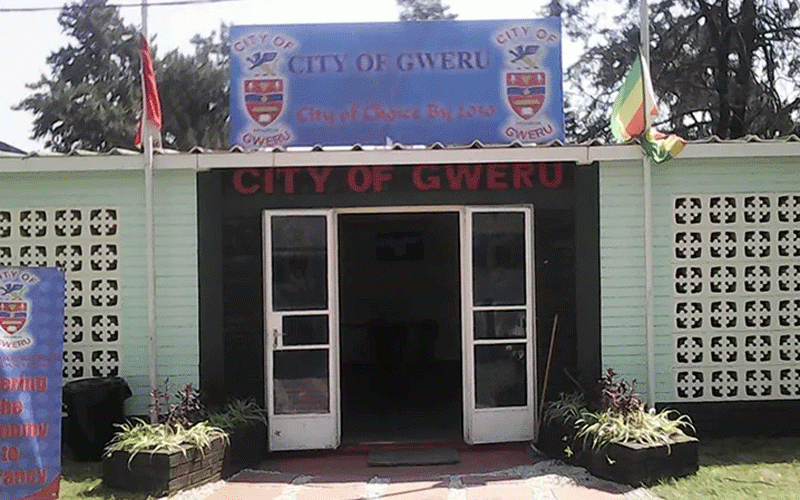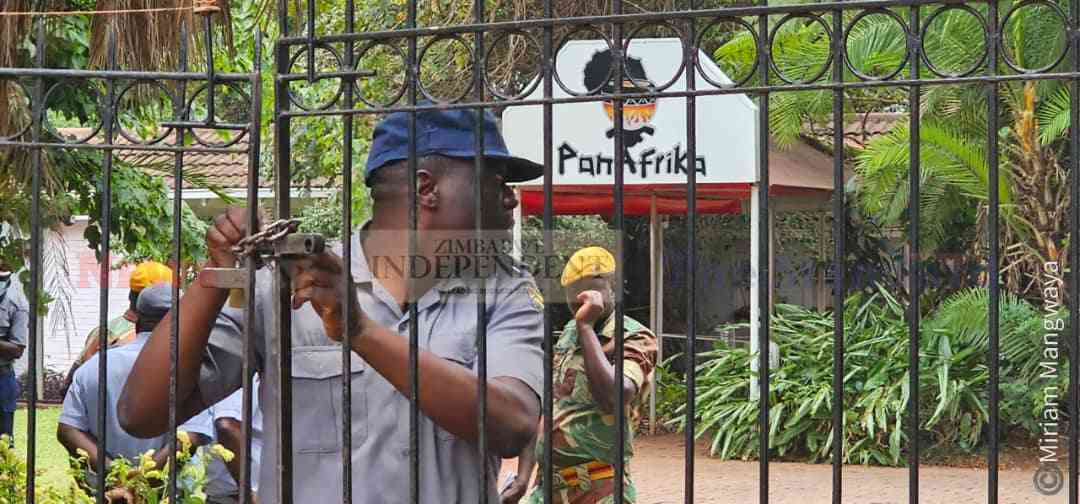
On a scorching Monday afternoon, Cornelia Selipiwe, the director of the Gweru Residents and Ratepayers Association (GRRA), briskly paces down the halls of Gweru Town House, hurrying to meet with a high-ranking city council official.
Selipiwe’s upcoming meeting with Vakai Chikwekwe, the acting town clerk is focused on the 2019 government land audit that revealed corrupt land deals in Gweru, infamously referred to as the “City of Progress".
Selipiwe emerges from the meeting visibly disappointed, as his efforts to uncover the identities of senior council officials involved in the corrupt land deals hit a brick wall.
“Some council officials involved have died, retired or left council without action being taken,” Selipiwe says.
“Yet these corrupt land deals deprived the Midlands capital city millions of dollars that could have been used to improve service delivery.”
The Gweru City Council is reported to have sold commercial, residential, industrial, and institutional properties with a total value of over US$21 million between 2009 and 2019, according to a government-commissioned land audit.
However, the council only realised US$11,811,848 from these sales, raising questions about the handling of the funds.
“To date council has realised $11 811 848 for the stands disposed of and had an outstanding balance of around $10 077 974 due and payable by the beneficiaries,” the report reads.
- Sakunda hail SA stadia tour
- Rufaro Stadium refurb gathers momentum
- Huge incentives for DeMbare, Bosso
- Chiri vows to stop looting
Keep Reading
“The use of the manual record system, which was not in order and the Promun system was not reliable as stands sold on cash basis were not captured in the system.”
The report revealed that some of the land in question was allocated for recreational sites, open spaces, and even golf courses, suggesting potential misappropriation of public resources.
“About 15 commercial stands were created on the Gymkhana (Gweru Sports Ground) recreational site without following change of reservation procedures, thus depriving residents of recreational facilities,” the report added.
The audit uncovered two further cases of irregular land allocation.
Firstly, stands 9290, 9291, and 9293 were created on an open space without approval for a change of reservation, with the stands measuring 2500, 5000, and 4000 square meters respectively.
Secondly, three infill stands, 9240, 9043, and 9242, were created on an unapproved layout plan of Gwelo Township lands, measuring 11,783 hectares and located on stand number 6034.
The audit uncovered two instances of non-compliance with regulations in the allocation of land.
Firstly, five institutional stands (9110, 9108, 9109, 9241, and 9108E) were illegally developed on an open space without following proper procedures.
Secondly, three stands (9236, 9237, and 9238) were created on servitude along the Gweru-Bulawayo Road without proper authorization.
Auditor-General Mildred Chiri conducted a land inventory in 2020, which uncovered irregularities in the sale of stands by Gweru City Council.
The report revealed that stands worth over US$1.7 million were sold, but the council failed to provide adequate documentation for all transactions, including details of the beneficiaries and receipts.
Chiri’s investigation implicated some former councillors who had not paid for stands that they purchased at concessionary rates, despite their term of office having expired and the agreement being that they pay the balance before leaving office.
“The level of corruption at Gweru City Council is like a family tradition passed from generation to generation,” Selipiwe said.
“And to make matters worse, land was parcelled out on undesignated sites like open spaces, recreational sites, golf courses, wetlands and servitudes.”
According to David Chikore, the executive director of the Gweru Residents and Ratepayers Development Association, there is lack of commitment from the city’s leaders to combat corruption.
“What baffles the mind is the silence of councillors whom we elected to represent our interests as residents,” Chikore argues.
Chikore said an external independent probe should be conducted to carry out a forensic land audit, given the allegations of bribery involving some city officials, which may explain their reluctance to address the corruption issues raised in the land audit.
“As residents we feel short-changed by the actions of the city fathers because we had expected them to, among other roles, play an oversight function over council employees but they have chosen to be in the same bed with the looters,” Chikore said.
According to Gweru-based economic commentator Trust Chikohora, residents are bearing the brunt of corruption, as they are now forced to endure poor service delivery.
“The money that was supposed to be realised from the sale of land would have improved health care through adequate resourcing of council health facilities, improved education, rehabilitated roads and provision of clean water among other developmental issues,” Chikohora said.
“What pains most is that no action has been taken against those involved in these dishonest practices and you just wonder where the conscience of public office bearers has gone.”
Selipiwe added: “It’s as if nothing has really happened in the City of Gweru in terms of shady land deals.
“Those involved lead lavish lifestyles while the Midlands capital is bleeding with deep wounds of neglected service delivery.”
Selipiwe said they were plotting protests and court action because “We cannot continue to watch this action less approach for years”.
Former Gweru mayor Josiah Makombe denied any corruption took place during his tenure and instead blames his predecessors for any irregularities in land deals.
“During my tenure we managed to institute disciplinary action against employees involved. I, however, agree that more should be done in bringing the culprits to book,” Makombe said.
Vincent Chakunda, a local governance expert, says many local authorities have a poor track record in terms of their governance practices.
“We have disorganised accounting systems in most local authorities and this has largely contributed to revenue leakages,” Chakunda said.
The local authority’s endemic corruption is revealed by a 2013 study by Angeline Sithole, a scholar at Midlands State University, entitled “Corruption in Zimbabwean Urban Local Authorities: A Case of Gweru City Council.”
According to Sithole’s research, corruption at the local authority was widespread, including bribery, embezzlement, nepotism, and the misuse of council assets.
Some council officials allegedly purchased council assets such as stands and vehicles at low values, and council workers were reportedly bribed for illegal water reconnections.
Sithole recommended that the government establish codes of conduct and strong independent oversight bodies to ensure that acceptable standards of behavior are upheld in local authorities.
Additionally, improving remuneration can be used as a strategy to reduce cases of corruption.
According to a 2019 service level benchmarking peer review committee report for local authorities, 47% of top and middle managers at Gweru City Council were unqualified for their positions, contributing to the failure in dealing with corruption and abuse of resources, which compromised service delivery.
Constance Mariko (36) of Ascot Extension said as a result of endemic corruption, service delivery in Gweru has collapsed.
She says garbage has not been collected for several months, leading to waste piling up in many parts of the city due to the breakdown of the local authority’s fleet.
According to the 2022 census, only three reliable vehicles serve a population of 158,200, which has greatly impacted the already collapsing service delivery in the city.
“You begin to wonder about the priorities of our city fathers,” Mariko sighed as she stared back at the mound of rubbish which has become a health hazard in her area.
“You would have expected the council to buy more refuse trucks and give importance to service delivery.
“But we hear tales of looting and extravagance by senior council officials. We have never heard anyone getting arrested for stealing council resources and it’s quite disheartening.”
A drive around the city centre and along the streets of Gweru’s suburbs revealed years of neglect, with dilapidated water and road infrastructure being the order of the day.
“You struggle to navigate through these roads. There are potholes everywhere,” James Chiseko, a motorist said.
Current mayor Hamutendi Kombayi believes offenders will be brought to book.
“You can’t walk scot free with corruption tentacles forever,” Kombayi said.
“My term of office was short and ends in few months’ time, but I can guarantee that in that short space of time we managed to keep corruption activities at bay.”
The Zimbabwe Anti-Corruption Commission has been active in investigating corruption cases since 2018, but there have been criticisms that the commission has failed to effectively prosecute and bring corrupt officials to justice in Zimbabwe.
Despite its efforts, many corruption cases still go unpunished, leaving citizens skeptical of the government’s commitment to fighting corruption. - THE REPUBLIC










